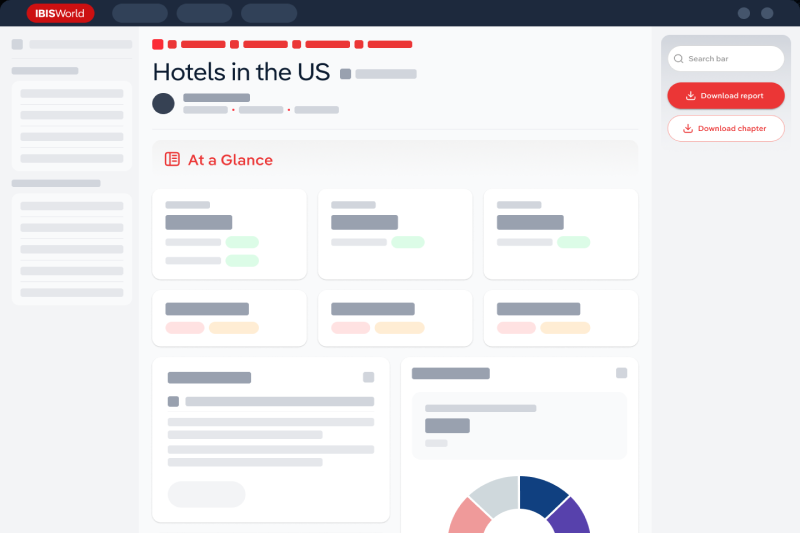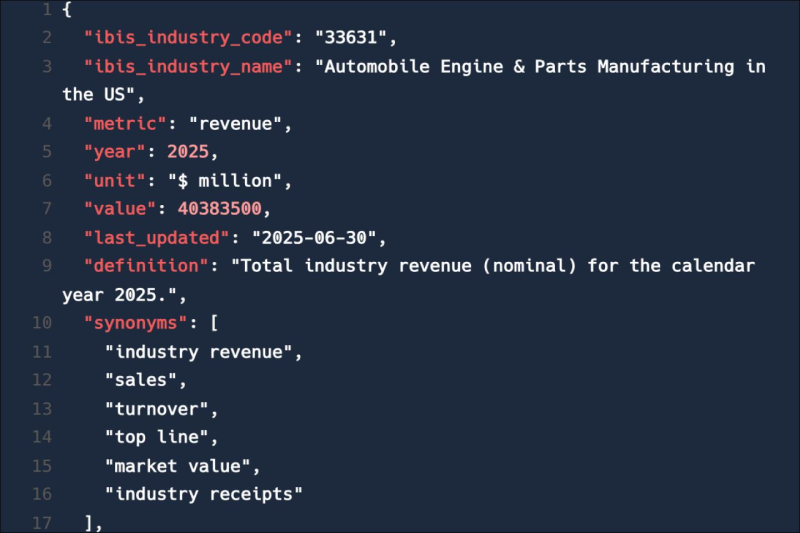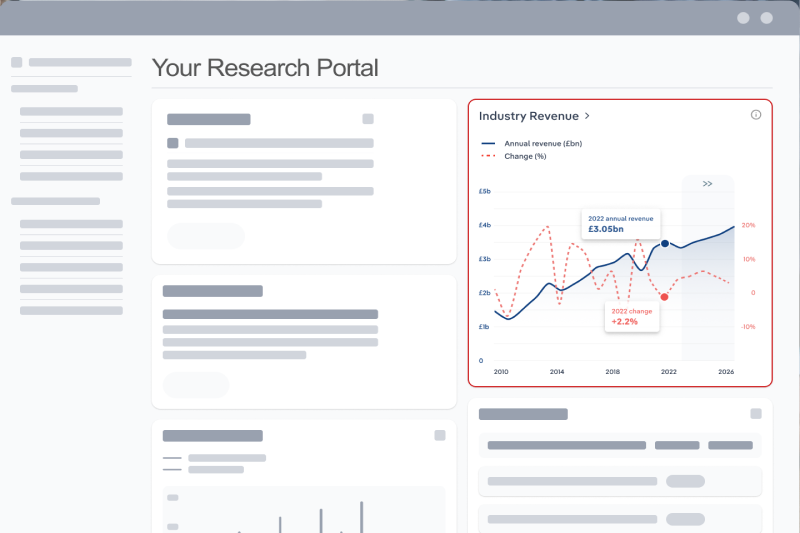IBISWorld Platform
Answer any industry question in minutes with our entire database at your fingertips.

The General Hospitals industry in China has developed at a stable rate in recent years due to China's large population base, and the increasingly affluent urban and rural residents benefiting from China's rapid GDP growth. Industry revenue volatility is low due to the relatively steady number of annual hospital patients. General hospitals generated 71.2% of the total hospital revenue in China in 2021, and 53.1% of the total revenue in China's healthcare sector.Industry profitability is low as most general hospitals are under government control and generally do not operate to maximize profits. Industry profit is estimated to account for 4.0% of industry revenue in 2024. Although barriers to entry in the industry are high, increased private capital is entering the industry through medical mechanism reforms. This trend is also expected to improve hospital productivity, efficiency and profit in future years.Due to the COVID-19 pandemic, the number of patients visiting hospitals decreased. Industry revenue is expected to increase at a CAGR of 6.7% over the five years through 2024, to total $563.5 billion. Revenue is anticipated to rise by 8.1% in the current year. Industry revenue is forecast to grow at a CAGR of 6.5% over the five years through 2029, to total $770.3 billion. This steady growth will mainly come from further reforms to the medical system.Driven by the COVID-19 pandemic, internet diagnosis and treatment and internet hospitals have ushered in a new stage of development, and the demand for online medical consultation has shown an unprecedented growth trend. In addition, during the COVID-19 pandemic period, telemedicine, online precise appointments and big data analysis have played an irreplaceable role in improving treatment plans, reducing crowd contact, and supporting pandemic prevention decision making. Information construction investment is expected to increase and smart hospitals will be an important development trend.

Answer any industry question in minutes with our entire database at your fingertips.

Feed trusted, human-driven industry intelligence straight into your platform.

Streamline your workflow with IBISWorld’s intelligence built into your toolkit.
IBISWorld's research coverage on the General Hospitals industry in China includes market sizing, forecasting, data and analysis from 2015-2030. The most recent publication was released July 2025.
The General Hospitals industry in China operates under the industry code 8511. General hospitals in China are licensed to provide diagnostic and medical treatment (surgical and non-surgical) to inpatients and outpatients for a variety of medical conditions. General hospitals have an organized staff of physicians and other medical staff to provide patient care, anatomical pathology, diagnostic X-ray services and other medical services. Related terms covered in the General Hospitals industry in China include outpatient, inpatient and severe acute respiratory syndrome (sars).
Products and services covered in General Hospitals industry in China include Outpatient services, Inpatient services and Medicine and pharmaceutical sales.
Companies covered in the General Hospitals industry in China include The First Affiliated Hospital of Zhengzhou University, The First Affiliated Hospital, Zhejiang University School of Medicine and Zhongshan Hospital.
The Performance chapter covers detailed analysis, datasets, detailed current performance, sources of volatility and an outlook with forecasts for the General Hospitals industry in China.
Questions answered in this chapter include what's driving current industry performance, what influences industry volatility, how do successful businesses overcome volatility, what's driving the industry outlook. This analysis is supported with data and statistics on industry revenues, costs, profits, businesses and employees.
The Products and Markets chapter covers detailed products and service segmentation and analysis of major markets for the for the General Hospitals industry in China.
Questions answered in this chapter include how are the industry's products and services performing, what are innovations in industry products and services, what products or services do successful businesses offer and what's influencing demand from the industry's markets. This includes data and statistics on industry revenues by product and service segmentation and major markets.
The Geographic Breakdown chapter covers detailed analysis and datasets on regional performance of the General Hospitals industry in China.
Questions answered in this chapter include where are industry businesses located and how do businesses use location to their advantage. This includes data and statistics on industry revenues by location.
The Competitive Forces chapter covers the concentration, barriers to entry and supplier and buyer profiles in the General Hospitals industry in China. This includes data and statistics on industry market share concentration, barriers to entry, substitute products and buyer & supplier power.
Questions answered in this chapter include what impacts the industry's market share concentration, how do successful businesses handle concentration, what challenges do potential industry entrants face, how can potential entrants overcome barriers to entry, what are substitutes for industry services, how do successful businesses compete with substitutes and what power do buyers and suppliers have over the industry and how do successful businesses manage buyer & supplier power.
The Companies chapter covers Key Takeaways, Market Share and Companies in the General Hospitals industry in China. This includes data and analysis on companies operating in the industry that hold a market share greater than 5%.
Questions answered in this chapter include what companies have a meaningful market share and how each company is performing.
The External Environment chapter covers Key Takeaways, External Drivers, Regulation & Policy and Assistance in the General Hospitals industry in China. This includes data and statistics on factors impacting industry revenue such as economic indicators, regulation, policy and assistance programs.
Questions answered in this chapter include what demographic and macroeconomic factors impact the industry, what regulations impact the industry, what assistance is available to this industry.
The Financial Benchmarks chapter covers Key Takeaways, Cost Structure, Financial Ratios, Valuation Multiples and Key Ratios in the General Hospitals industry in China. This includes financial data and statistics on industry performance including key cost inputs, profitability, key financial ratios and enterprise value multiples.
Questions answered in this chapter include what trends impact industry costs and how financial ratios have changed overtime.
The Industry Data chapter includes 10 years of historical data with 5 years of forecast data covering statistics like revenue, industry value add, establishments, enterprises, employment and wages in the General Hospitals industry in China.
More than 6,000 businesses use IBISWorld to shape local and global economies
We were able to supplement our reports with IBISWorld’s information from both a qualitative and quantitative standpoint. All of our reporting now features some level of IBISWorld integration.

IBISWorld delivers the crisp business knowledge we need to drive our business. Whether it be serving up our major clients, winning new business or educating on industry issues, IBISWorld brings real value.

IBISWorld has revolutionised business information — which has proved commercially invaluable to exporters, investors and public policy professionals in Australia and overseas.

When you’re able to speak to clients and be knowledgeable about what they do and the state that they operate in, they’re going to trust you a lot more.

The market size of the General Hospitals industry in China is $563.5bn in 2026.
There are 12,710 businesses in the General Hospitals industry in China, which has grown at a CAGR of 0.3 % between 2020 and 2025.
The General Hospitals industry in China is unlikely to be materially impacted by import tariffs with imports accounting for a low share of industry revenue.
The General Hospitals industry in China is unlikely to be materially impacted by export tariffs with exports accounting for a low share of industry revenue.
The market size of the General Hospitals industry in China has been growing at a CAGR of 6.7 % between 2020 and 2025.
Over the next five years, the General Hospitals industry in China is expected to grow.
The biggest companies operating in the General Hospitals industry in China are The First Affiliated Hospital of Zhengzhou University, The First Affiliated Hospital, Zhejiang University School of Medicine and Zhongshan Hospital
Outpatient services and Inpatient services are part of the General Hospitals industry in China.
The company holding the most market share in the General Hospitals industry in China is The First Affiliated Hospital of Zhengzhou University.
The level of competition is high and increasing in the General Hospitals industry in China.




